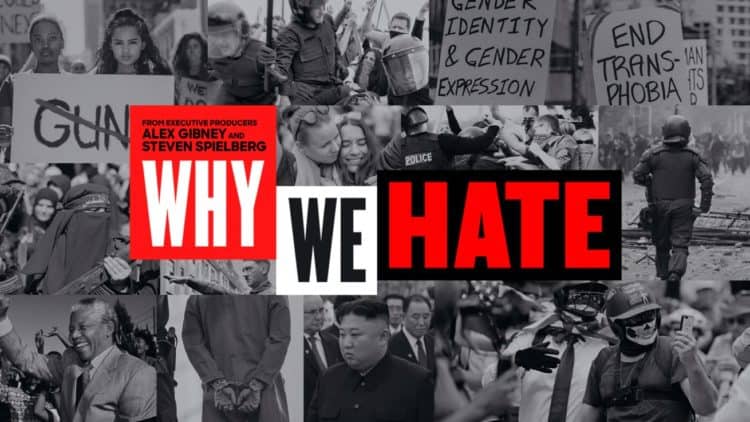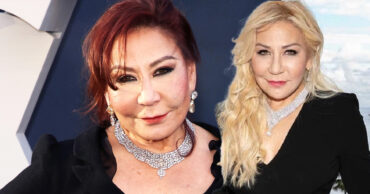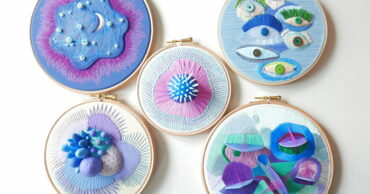
Disgust, fear, and sorrow hurt us. We have so many destructive emotions, but perhaps none more compelling than hatred. The human ability to hate things and people can drive us to acts of violence unseen in any other species. Generations of people have worked to understand human emotions, what triggers us, and what calms us down. Yet it never seems like enough to really make a difference. For every individual who ‘gets better,’ there are a hundred more who see something to hate in the world. What does it all mean? Is there anything we can do about it, or is this greatest of all destructive urges going to cause our inevitable demise? This is why you should be watching “Why We Hate” on Discovery.
If You Can Feel Hate, You Can Understand It
Discovery has embarked on a truly enlightening journey with its incredible Why We Hate miniseries. It’s one of those universal emotions that people can all relate to, which is part of what makes hatred dangerous. As much as Hate can become divisive, it can also bind people together in a shared purpose. Destroying what we hate can even feel good, which is especially problematic. The incredible directors Geeta Gandbhir and Sam Pollard have come together with outstanding filmmakers Steven Spielberg and Alex Gibney to help create the series which explores and explains how and why people feel such a destructive emotion. While many documentaries, shows, and movies have touched on the subject of hatred, they are almost always biased toward one side of a conflict or the other.
Taking a Different Approach
Hitler is perhaps the most famous subject of discussions about hate in the western world, though he’s not the sole subject of this series. The majority of those conversations are primarily about what the Germans did to the Jews. This vilifies Germans in general and Hitler explicitly. We aren’t saying there’s no justice in vilifying someone who did wrong, but that’s not what we’re getting at in this case. Bear with us for a moment while we make a point about Why We Hate by using this famous example of how hatred feeds more hatred.
What many WWII stories don’t do is show very effectively how and why such a person was able to rise to power. Hitler held sway over so many people by pandering to their self-interest and playing on their hate. The Germans were badly treated in the Treaty of Versailles, and they were angry and afraid. Most people aren’t learning a story about how one man could hate so deeply he found a way to sway a nation and nearly took over the world. It’s a story about the group he targeted. In short, it feels good to hate a monster like Hitler. So instead of showing a bigger picture, too many stories about him only serve to feed the fires of hatred. The story of hatred and how people twist it, use it, fall victim to it, and destroy things with it. Hate isn’t exclusive to the people you think are ‘bad.’ Hatred isn’t a story about how any one group was wronged, but rather a story about how all humans are capable of great injustice because our hate and fear give us justification for atrocious actions.
If You Can Understand Hate, You Can Help Change It
The goal of Why We Hate is simple. Get people information and get them talking. The only way we can change the discussion about hate and hate crimes is through a deeper understanding of the ways we learn to hate and how we use that emotion to justify our actions. Rather than taking sides in conflicts, the creators seek to present both sides of a story as fairly as possible. By showing that everyone uses the same emotion in the same way they elegantly and cautiously approach the topic.
Naturally, no approach is perfect. Because they have worked so hard to avoid vilifying any one group or individual, the show glosses over some important factors that contribute to hatred. Indeed, there’s more to it than anyone can present from a neutral perspective. Factors like poverty and institutional racism change the way people deal with hared. Sadly no amount of personal kindness and individual effort is enough to sway those deeper societal problems. Regardless of the flaws in the show, the effort is beautiful and largely useful in helping begin a dialogue and a better understanding of hatred. The diversity of the groups they’ve chosen to showcase, and the neutral perspective does bring light to a topic that is otherwise all too often glossed over.
If You Can Help Change Hate, There’s Hope For Us After All
There’s more hatred in the world than most people realize. A bully, whether in school or online, is expressing hatred by using it to destroy the confidence and safety of another person. This leads victims to return the hate, not with understanding and an attempt to help, but instead with hatred of their own. The same can be said of radical groups who attack one another. Instead of seeking peaceful resolutions, they learn how to hate and harm each other more effectively. Hate breeds more hate, and no one is immune to this effect.
Only by delving deeper, looking both outward and inward can we learn to resolve the root problem. Humans have a sense of “us” and “them.” The people and groups we identify with are part of ‘us’ and are worthy of inclusion, sympathy, love, and positive effort. Those who oppose our views and would have ‘us’ change become ‘them,’ the outsiders. “Them” is identified as a problem, a danger, and requires a solution. That solution is that we come to believe we must change or destroy ‘them.’ As you can see, this ingrained social construct we place over people is the structure of how we hate. It’s deeply divisive.
We allow ourselves to be swept up in the idea that two opposing views cannot coexist. While this is undoubtedly true in extreme cases, it’s not the only possible solution. De-radicalizing our thinking, and downgrading our hatred are paths to the solution. To change the world, we must first learn to change our minds. That’s the lesson Why We Hate is trying to get across to everyone. Don’t take our word for it, see the show for yourself.
Final Thoughts
The world doesn’t change overnight. In most cases, things are far slower to become a part of our world culture. If we’ve learned to hate and divide, then we can learn to accept and include, but not until the majority of the people become aware of what’s happening. It’s cliched, but those who aren’t part of the solution are part of the problem. The good news is that anyone can change how they react to hatred. Why We Hate on Discovery is a huge step forward in presenting people with the information they need to begin that process. What do you hate? Are you willing to change even if it means letting other people go on doing what you consider wrong while you work to help them learn a better way? Are you willing to help change your group, your ‘us’ so that we can all become better at working together? We’d love to hear your thoughts in the comments section after you’ve seen the show.
 Follow Us
Follow Us





